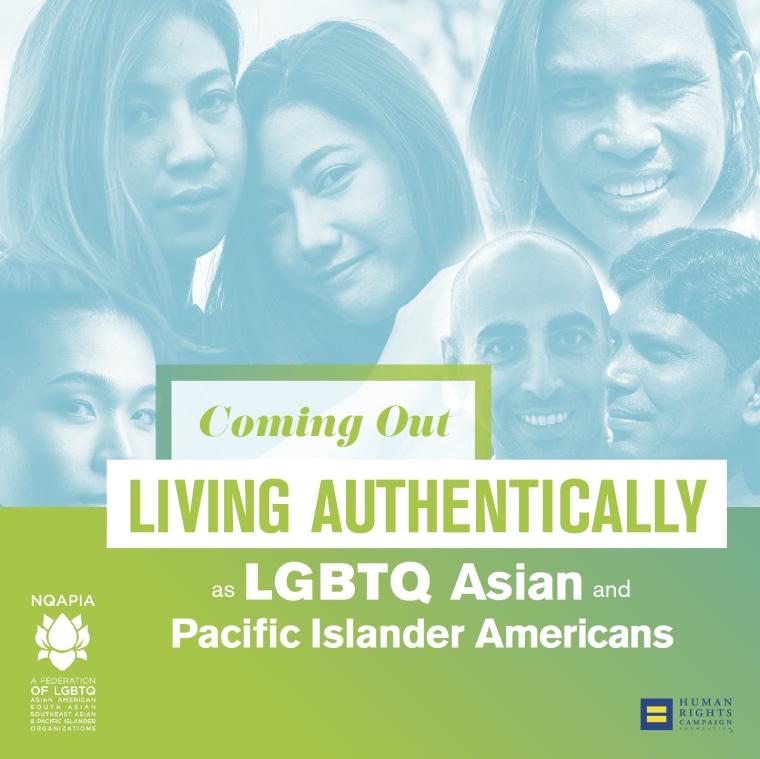A new LGBTQ resource guide hopes to help Asian Americans and Pacific Islanders with the coming out process.

The Human Rights Campaign Foundation released “Coming Out: Living Authentically as LGBTQ Asian and Pacific Islander Americans” Friday to coincide with the nonprofit National Queer Asian Pacific Islander Alliance (NQAPIA) annual conference. The document details challenges someone of Asian or Pacific Islander descent may face while coming out, including language barriers and family expectations.
The resource is the first in a planned series of three intended to help people of color who, co-author Mark Lee said, may face additional obstacles in the coming out process.
“We know that … folks who are LGBTQ and people of color ... face a lot of different intersectional challenges,” Lee, a senior writer for the foundation, said Thursday by phone. “Whether it’s with their families, whether it’s at work or in school, whether they have to navigate immigration barriers or language or cultural barriers — these specific resources are specifically meant to ... help individuals as they navigate these intersectional challenges that other folks may not face.”
While demographic data about the LGBTQ community is sparse, 4.9 percent of Asian Americans and Pacific Islanders polled by Gallup in 2016 said that they were LGBT, up from 3.5 percent in 2012. There were approximately 22.9 million Asian Americans, Pacific Islander, and Native Hawaiians that year, according to Census estimates.
While the Asian American and Pacific Islander community is diverse, representing “dozens of different cultures, ethnicities and nationalities,” the foundation noted in a press release, the document co-authors said that there were many shared experiences.
“Many API Americans, especially those who are immigrants or the children of immigrants, may feel like they are living in a bicultural world, where you must grapple with norms and expectations of both American and API American cultures,” Glenn Magpantay, co-author and executive director of NQAPIA, said in a statement. “Above all, know that there is no specific ‘mold’ you have to fit, even as you may feel pressure from your family or community.”
Resources like those published by the foundation can be especially helpful for those in the early stages of coming out, according to Alice Y. Hom, host of the Historically Queer Podcast and a community activist who was not involved in the production of the document.
“If people are at the early stage of being aware, having culturally competent resources can be helpful,” she said Thursday by phone, noting that some resources may focus only on sexuality and lack information on cultural, racial, or ethnic identity and gender issues.
In addition to detailing obstacles to expect and ways to manage them, the document also covers LGBTQ identities that have historically existed in Asian and Pacific Islander cultures, as well as presents a slate of community leaders and artists, including Democrat Mark Takano, the first openly LGBTQ person of color elected to Congress; and actors BD Wong, Margaret Cho, and Maulik Pancholy.
“We want to make it clear that although there may be some challenges that folks may additional have to face, there are obviously amazing artists, politicians, … and other folks who are contributing to our society at large that we should be celebrating,” Lee said.
Follow NBC Asian America on Facebook, Twitter, Instagram and Tumblr.
